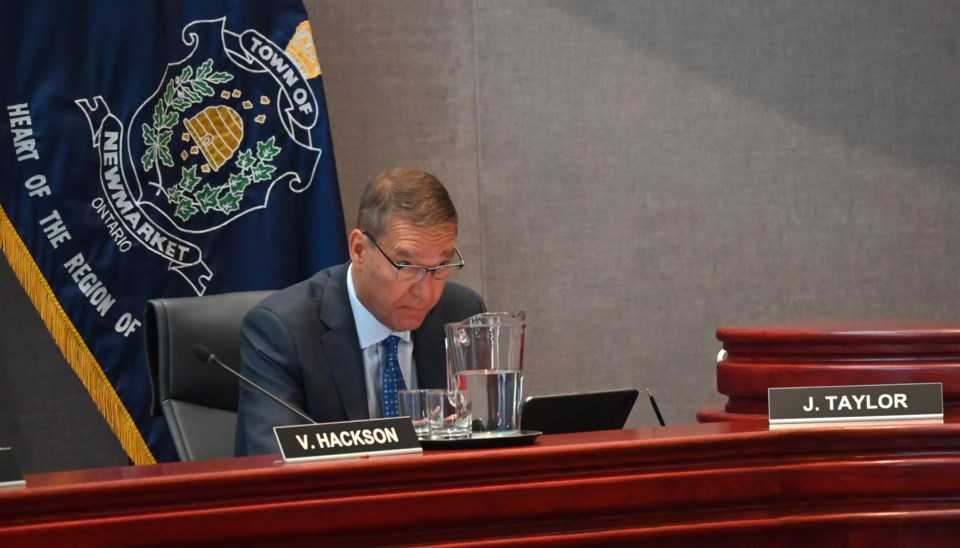York Region council plans to do advocacy as staff confirmed a $34.9 million hit from the loss of development charges due to Bill 23.
The provincial legislation reduced development charges paid by developers to fund infrastructure, causing months of protest from municipalities. Now, the bill is starting to see a financial impact, with regional staff saying it has cost the municipality $34.9 million through July.
Newmarket Mayor John Taylor said the region has to be more outspoken about the issue and present facts that refute that housing shortages are due to municipalities and mayors.
“I don’t think we’ve spoken loudly enough to clearly enough,” Taylor said, adding that the pushback to the province should not be “in a combative way but put the facts on the table, and put them on the table quarterly if we need to.”
The province has applied pressure on municipalities to address housing issues, also changing planning rules to try and speed up approvals. It has promised to make up for the municipalities' loss of revenue. But municipalities have said a $1.2 billion dollar over three-year fund introduced last month — tied to development — will not be nearly enough.
A staff report said it could draw from a debt reduction reserve to make up for the shortfall, a reserve that got a $22.2 million boost from a year-end surplus in 2022. This was done specifically in anticipation of risks like the development charges loss.
Markham Mayor Frank Scarpitti said the public will realize things when they see it in their wallets.
“When the rubber hits the road, when the property taxpayer sees the increase related to the loss of revenue, that is certainly when the public will understand,” he said.
Chairman Wayne Emmerson said staff can put the data together and send a package to Queen’s Park.
No facilitator for the regional review
Meanwhile, the province has decided not to review York Region governance through a facilitator.
The province is eyeing reviews for several regions, with the possibility of York Region ceasing to exist in its current form. But the new Minister of Municipal Affairs and Housing Paul Calandra said that rather than have a facilitator do this, he will assign the task to the standing committee on heritage, infrastructure and cultural policy.
“The standing committee has the ability to carry out the work in a manner that is public, open and accountable,” Calandra said in a letter sent Sept. 13.
Markham Mayor Frank Scarpitti, who has endorsed the amalgamation of York Region municipalities, said he welcomes the change in methodology.
“I actually applaud the minister for doing it,” Scarpitti said. “Hopefully, they would get through the process in a much more efficient timeline.”
The region planned to start a task force once the province appointed a facilitator but deferred on that resolution with the province’s change.
Emmerson said they would wait to see more details from the province.
“I want to see what the province is looking for before we do anything,” he said.
